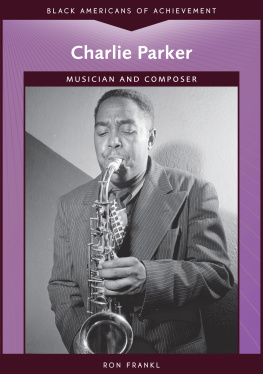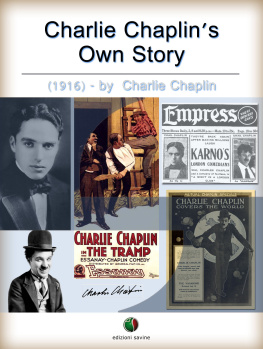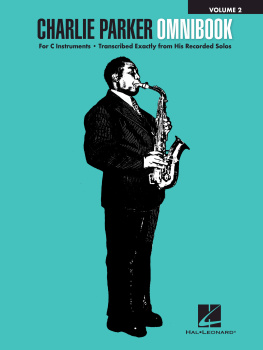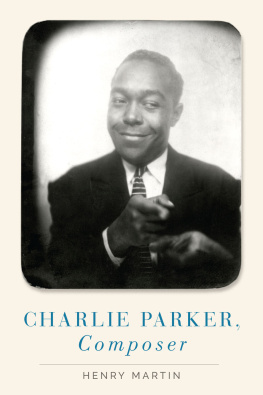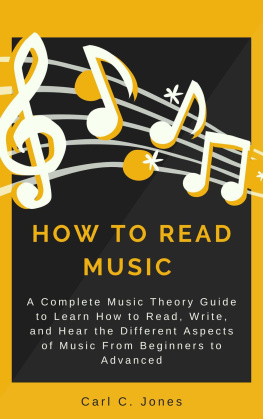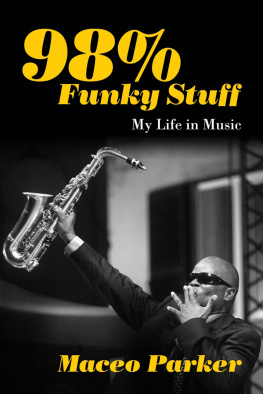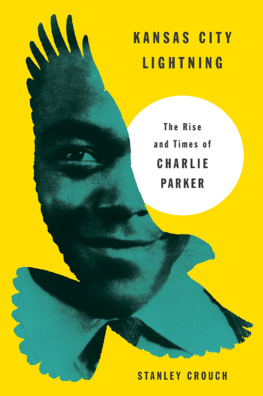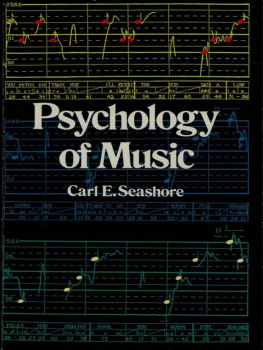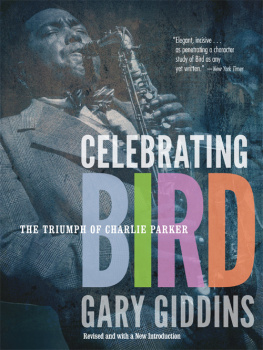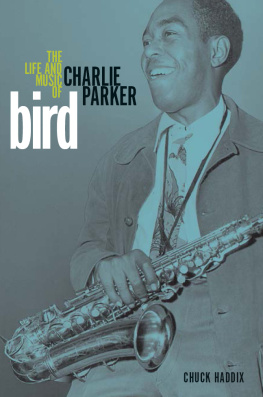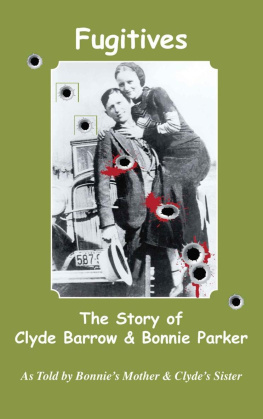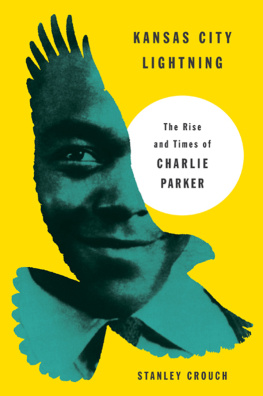Carl Woideck - Charlie Parker: His Music and Life
Here you can read online Carl Woideck - Charlie Parker: His Music and Life full text of the book (entire story) in english for free. Download pdf and epub, get meaning, cover and reviews about this ebook. year: 2020, publisher: University of Michigan Press, genre: Non-fiction. Description of the work, (preface) as well as reviews are available. Best literature library LitArk.com created for fans of good reading and offers a wide selection of genres:
Romance novel
Science fiction
Adventure
Detective
Science
History
Home and family
Prose
Art
Politics
Computer
Non-fiction
Religion
Business
Children
Humor
Choose a favorite category and find really read worthwhile books. Enjoy immersion in the world of imagination, feel the emotions of the characters or learn something new for yourself, make an fascinating discovery.

- Book:Charlie Parker: His Music and Life
- Author:
- Publisher:University of Michigan Press
- Genre:
- Year:2020
- Rating:5 / 5
- Favourites:Add to favourites
- Your mark:
- 100
- 1
- 2
- 3
- 4
- 5
Charlie Parker: His Music and Life: summary, description and annotation
We offer to read an annotation, description, summary or preface (depends on what the author of the book "Charlie Parker: His Music and Life" wrote himself). If you haven't found the necessary information about the book — write in the comments, we will try to find it.
Charlie Parker: His Music and Life — read online for free the complete book (whole text) full work
Below is the text of the book, divided by pages. System saving the place of the last page read, allows you to conveniently read the book "Charlie Parker: His Music and Life" online for free, without having to search again every time where you left off. Put a bookmark, and you can go to the page where you finished reading at any time.
Font size:
Interval:
Bookmark:
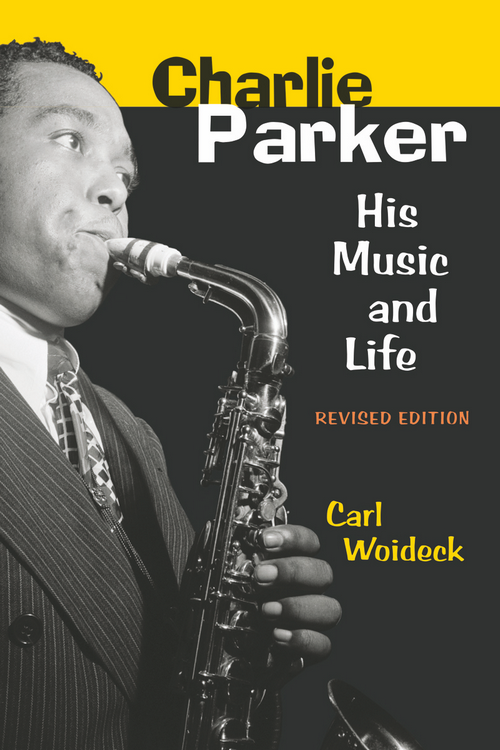
Other Jazz Books from University of Michigan Press
Jazz from Detroit
By Mark Stryker
Dameronia: The Life and Music of Tadd Dameron
By Paul Combs with a foreword by Benny Golson
John Lewis and the Challenge of Real Black Music
By Christopher Coady
Lester Young
By Lewis Porter
Delightfulee: The Life and Music of Lee Morgan
By Jeffery S. McMillan
Music Is My Life: Louis Armstrong, Autobiography, and American Jazz
By Daniel Stein
John Coltrane: His Life and Music
By Lewis Porter
Before Motown: A History of Jazz in Detroit
By Lars Bjorn with Jim Gallert
Carl Woideck
University of Michigan Press
Ann Arbor
Copyright 2020 by Carl Woideck
All rights reserved
For questions or permissions, please contact
Published in the United States of America by
the University of Michigan Press
Manufactured in the United States of America
Printed on acid-free paper
First published August 2020
A CIP catalog record for this book is available from the British Library
ISBN 978-0-472-03789-6 (paper : alk. paper)
ISBN 978-0-472-12722-1 (ebook)
This book was originally published as part of The Michigan American Music Series.
Music is your own experience, your thoughts, your wisdom. If you dont live it, it wont come out of your horn.
They teach you theres a boundary line to music, but, man, theres no boundary line to art.
I lit my fire, I greased my skillet, and I cooked.
Charlie Parker
Charlie Parker (19201955) was one of the most innovative and influential of all jazz musicians, regardless of era. His position in jazz is analogous to Louis Armstrong in that both advanced the music that they had inherited with regard to melody, rhythm, and harmony, inviting all jazz instrumentalists and composers of any era to reevaluate every aspect of their arts.
Charlie Parker had an artistic brilliance that can never be adequately explained. The overused term genius truly describes his gift. He was capable of making remarkable leaps of understanding, conception, and execution. Brilliance of the magnitude possessed by Charlie Parker is rare in any art. For him, there was seemingly no separation between conception and execution. Parker also possessed a remarkable ability to communicate with listeners and to move them emotionally, whether in person or on recordings. One hundred years after his birth, his music continues to have an immediate and meaningful impact upon listeners.
How did Parker experience the creative act of improvisation? In an interview with a nonmusician, Parker offered a general statement to the effect that an artist can be inspired by the way you feel, the beauty of the weather, the nice look of a mountain, maybe a nice fresh cool breath of air. Probably more candid were his responses to musicians queries as to his state of mind while improvising. Although Parker may have been affecting a certain modesty about his gifts, these examples suggest a certain unconsciousness or detachment while in the creative act, like an athlete in the zone. Violinist Aaron Chaifetz, part of Parkers touring string ensemble of the 1950s recalled,
Page viii I can remember sitting there, and him playing Laura, and in the middle of Laura hearing parts of the Firebird Suite of Stravinsky. And, when it was all over, [I] say to him something like, Charlie, do you know what you did? And he had nowasnt even aware of it. It just came extemporaneously.
Guitarist Jimmy Raney reported a particularly candid exchange with Parker:
Up at the Prescott Hotel, I asked him, What do you think about when youre playing? He got serious for a moment; he said he felt like everything disappeared when he put the horn to his mouth; he forgot the outside world, the girls. He said, Sometimes I look at my fingers and Im surprised that its me playing. I get an idea, and I try it till it comes out right.
As one of the architects of modern jazz (often called bebop), Charlie Parker has had a profound effect on American music. His music reached such a high level of melodic, rhythmic, and harmonic sophistication that saxophonists and other instrumentalists continue to study it both as a technical challenge and as aesthetic inspiration. The jazz music of Parker and his peers, once considered by polite society to be merely the artistic expression of a revolutionary minority within a black musical minority, continues to influence American music more than fifty years after bebops inception. Not strictly the iconoclastic movement that some critics, listeners, and musicians believed it to be, modern jazz was based in earlier jazz styles and actually codified the common practice techniques of jazz, going on to become the lingua franca of jazz.
Charlie Parker was a heroin addict for more than half of his life, and was certainly an alcoholic in the 1950s. So strong was his life force and so great was his genius, much of the time Parkers intoxication did not clearly affect his playing. Closer listening, of course, reveals that an addiction-dominated lifestyle took a toll on his art, especially in the 1950s. Given his often-stated new artistic goals of the 1950s, many have wondered what further artistic heights he might have attained if he had found a way to consistently create in a lucid state of consciousness. This of course is an unanswerable question; he did attain lasting artistic heights, and we are fortunate to be able to experience them through his transcendent recordings.
His transcendent talent aside, what artistic values led him to explore melodic, rhythmic, and harmonic sophistication in jazz? In the 1930s, many journeyman jazz players still got through solos with a minimum of harmonic knowledge and with inconsistent technical execution. Some of Page ix Parkers values regarding the clean execution of musical ideas may be seen in his own statements. Of his early influence, saxophonist Lester Young, Parker said, He played so clean and beautiful. Charlie Parker was a living example of that philosophy; through knowing his horn, he attained that rare state of oneness with his instrument which allowed him to get anything you want.
How did Charlie Parker develop his virtuoso technique? Fellow saxophonist Paul Desmond asked Parker just that.
PD: Another thing thats been a major factor in your playing is this fantastic technique that nobodys quite equaled. I always wondered about that, too; whether there waswhether that came behind practicing or whether that was just fromfrom playing, whether it evolved gradually.
CP: Well, you make it so hard for me to answer, you know, because I cant see where theres anything fantastic about it at all.
Parker goes on to say that he had practiced long and hard as a youth in Kansas City. Although he was being modest about his ability, Parker must have noticed that virtuoso technique such as his was not possessed by most of his fellow musicians. Unlike most instrumentalists, he only had to practice concertedly for a few years. After his major artistic breakthrough of 1937 (see chapter 1), his pursuit of technique took leaps forward in a way that only the most gifted individuals can experience. To the extent that technique came easily to Parker, he certainly could have sincerely seen nothing fantastic about it.
Parker, whose musical education largely took place through the oral process, spoke of his respect of study:
Next pageFont size:
Interval:
Bookmark:
Similar books «Charlie Parker: His Music and Life»
Look at similar books to Charlie Parker: His Music and Life. We have selected literature similar in name and meaning in the hope of providing readers with more options to find new, interesting, not yet read works.
Discussion, reviews of the book Charlie Parker: His Music and Life and just readers' own opinions. Leave your comments, write what you think about the work, its meaning or the main characters. Specify what exactly you liked and what you didn't like, and why you think so.

